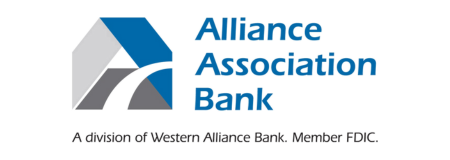EDITOR’S NOTE: This blog post originally appeared on Bustamante Engineers, Inc. blog and is shared by permission of the author. Learn more about Bustamante Engineers, Inc. at the end of this article.
Stormwater management facilities are man-made structures that help reduce flooding, slow down water flow and clean pollutants from water. Well-maintained stormwater management facilities not only work better to achieve their flood and pollution control objectives, but they are also more attractive and tend to have healthier plant and animal communities. Homeowners associations, commercial developments and any site with constructed stormwater management are usually responsible for the care and management of these facilities, including regular stormwater inspection.
Inspecting Your Stormwater Management Facilities
All stormwater management facilities require periodic inspections and maintenance. The first step is to identify all of the facilities and to delineate the maintenance responsibilities for each of them. Even if a facility appears to be in good condition, it should still be professionally inspected minimally on an annual basis to ensure that there are no hidden deficiencies, and maintenance activities should be performed proactively instead of reactively.
The inspector will want to see the basin is capable of running at full capacity and that the retention or detention pond meets most of the requirements that we discuss below. It is always cheaper to remediate issues early, rather than to perform costly repairs when the problems become more severe. Each facility is unique, and a stormwater maintenance professional can help you develop a specific plan for your community.
Stormwater Management Maintenance Checklist
Retention and detention basins and BMPs need periodic maintenance. If you are a property manager or part of a homeowner’s association, you will want to ensure that your retention or detention pond is cleaned out on a regular basis to ensure compliance with city and county codes.
- MAINTAIN the SURROUNDING GROUND – Keep the earth and dam around your retention pond in good order. The vegetation should be well maintained, and any overgrowth should be reduced.
- REMOVE DEBRIS – On a periodic basis, remove any silt or sediment buildup that may have accumulated at the basin forebay and structures from your retention basin.
- INSPECT the KEY COMPONENTS – Check the headwall, the weir, the exhaust and other components of the retention pond on a regular basis to ensure the basin is operating as intended.
- CHECK the STORM DRAINS – Take a look at the drains that are delivering water to the retention or detention pond and make sure they are free of debris and in good working order.
A Properly Maintained Stormwater Basin Helps Us All
To reduce the maintenance needed to keep the pond in working order, communicate with the homeowners or tenants and make sure everyone understands the importance of reducing the chemicals, pollutants and waste products that make their way down the storm drains in the neighborhood. If we educate people on the roll the retention or detention pond is playing, people will be more careful the next time they are going to blow their grass clippings or send their pet waste down the closest storm drain. Taking great care of your retention and detention ponds ensures that the water we are returning to our streams and rivers is cleaner than it would have been had it just passed over a greasy pavement.
Protect the Environment with Regular Inspections
It is important to ensure that your stormwater management facilities are functioning properly, especially when it rains. It can be confusing to understand what the maintenance obligations of the HOA are for each of the stormwater management facilities, especially when the responsibilities can vary between localities, communities, and individual facilities. Most communities need a stormwater facility maintenance professional, who can inspect all aspects of the system and make recommendations for proper maintenance and repairs when required.
If you’re not conducting annual stormwater inspections as part of your overall stormwater management plan, start now. Having a management plan that includes annual stormwater inspections will provide owners and managers with the valuable information they need to put together long-term maintenance budgets.
ABOUT THE AUTHOR
Bustamante Engineers, Inc. is a family owned business in Bucks County, Pennsylvania since the early 1990’s. With over 35 years of experience in civil engineering, structural design and evaluating building systems, we will work hard to tailor our expertise to meet your needs. Knowing the importance of building a strong relationship with the client, our company policy is to make sure we bring our professional and personal attention to every project. Learn more by visiting Bustamante Engineers, Inc.’s website by clicking here and contact Gregory S. Bustamante, P.E. via email by clicking here.

















